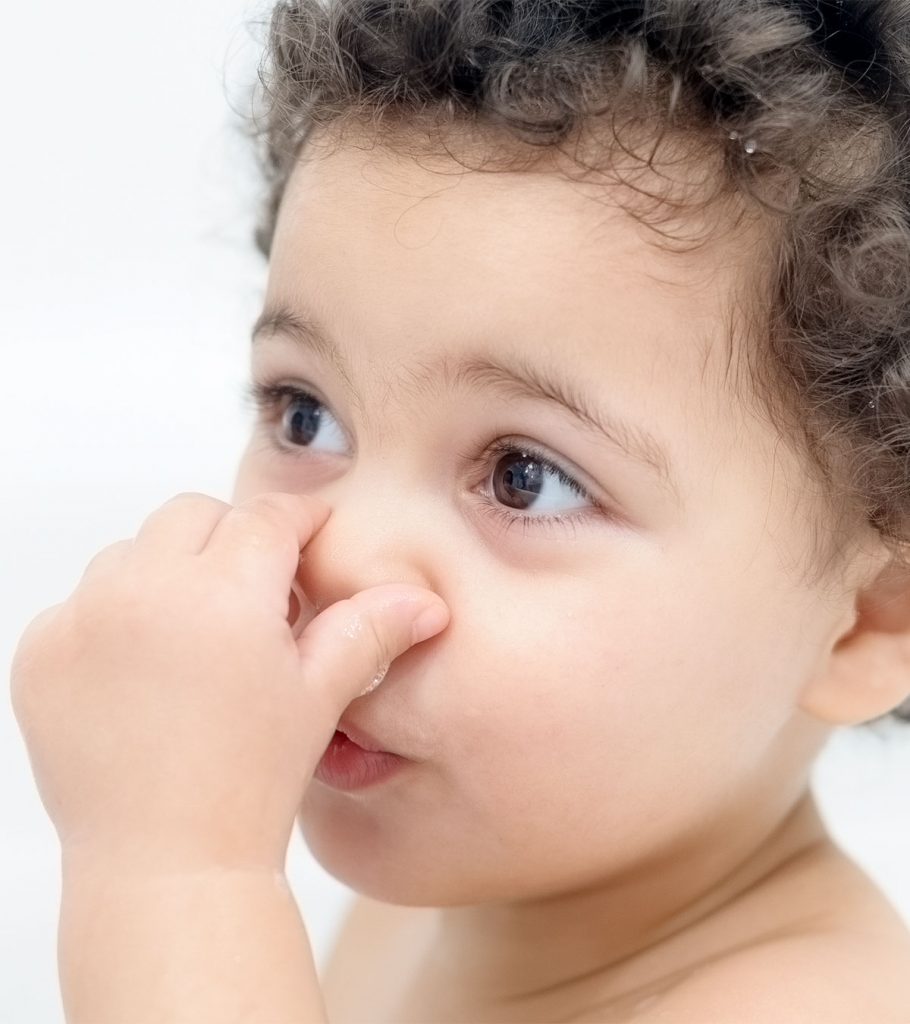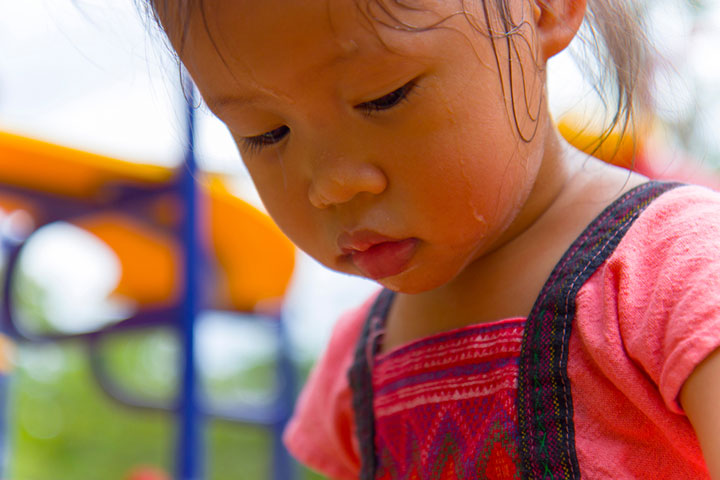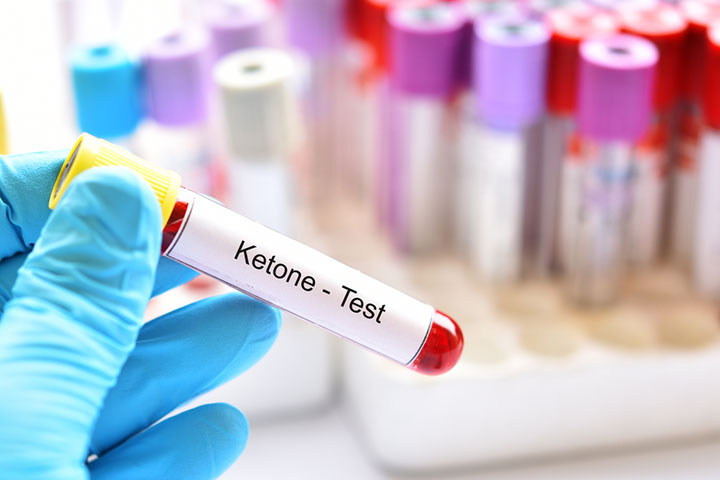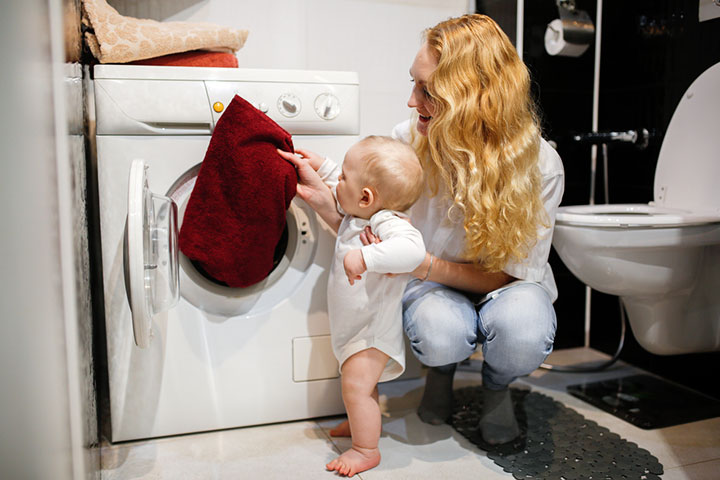Body odor or bromhidrosis is the unpleasant or foul smell produced by the breakdown of the acids in the sweat by bacteria (1). Though it is common in adults, body odor in toddlers is uncommon because they don’t have sufficient fatty acids and ammonia in their sweat, which can trigger bacterial action. Yet, a toddler may develop body odor due to several reasons.
For instance, if body odor occurs in places like armpits, it could indicate an underlying illness. In some toddlers, armpit odor may develop due to bacterial overgrowth or an underlying infection (2). Keep reading to understand the symptoms, causes, treatment, and prevention of body odor in toddlers.
Is Body Odor Normal In Toddlers?
Body odor in children who have not reached puberty is not uncommon. However, research studies on prepubescentiXThe stage of development before puberty children with body odor are limited (3). Thus, the American Academy of Pediatrics recommends paying attention to body odor among children who have not yet reached puberty (4).
What Causes Body Odor In Toddlers?
Apart from bacterial infections, a few other factors could contribute to body odor in toddlers (2).
- A few toddlers may have body odor after eating certain foods like non-organic dairy products, meat, eggs, and spicy food.
- It may also be due to the presence of parasites in the body.
- Some toddlers may have hyperactive sweat glands, due to a condition called hyperhidrosis, which produces more sweat causing excessive body odor and wetness.
- A rare condition called ‘fish odor syndrome’ may cause a fishy smell in the person’s breath, urine, and sweat. It is a result of genetic abnormality, and the stench may or may not be noticed immediately after birth.
- A rare cause of body odor is heavy metal toxicity. The Centers for Disease Control and Prevention (CDC) states that children are more prone to lead (a heavy metal) exposure, with an estimated 500,000 children in the US having blood lead levels (BLLs) equal to or exceeding the blood lead reference value (BLRV) of 3.5 micrograms per deciliter (µg/dL). A naturopathiciXA holistic approach to healthcare that utilizes natural therapies and the body’s ability to heal itself doctor may do a mineral test and heavy metal toxicity test just to rule out the chance of metal toxins in your toddler.
- Rare metabolic disorders may cause armpit odor in prepubescent children, as the body may not be able to generate enzymes required to break down chemicals in the body.
- For instance, a rare metabolic disorder called Phenylketonuria (5) is a condition where the body cannot break down phenylalanine, an amino acid present in food. The phenylalanine builds up, causing a strong body odor. Consuming less protein can help control body odor.
- If your toddler has Trimethylaminuria, a metabolic disorder, they may emit an unpleasant odor similar to that of a rotting fish (6).
- If the toddler has Tyrosinemia type 1 or methionine malabsorption metabolic disorder (7), they may have a distinct cabbage-like smell.
- If your toddler has Diabetic ketoacidosisiXA severe health condition characterized by abnormally high levels of ketone bodies in the serum and urine (8), there is a chance that they will have a distinct breath.
Symptoms Of Body Odor In Toddlers
It is easy to discern if your little one suffers from body odor, as the smell is pungent. You may observe armpit odor or odor in the other parts of the body.
Prevention Of Body Odor In Toddlers
Take these simple measures to put body odor at bay (9).
- Teach your toddler basic hygiene and help them keep themselves clean.
- Bathe your child every morning and evening.
- Regularly launder their bedding and clothes to prevent the building up of microbes, and thereby odors.
- Avoid offering foods like non-organic milk, meat, spicy meals containing garlic, chilies, and onions to lessen your little one’s odor problems.
- Applying special antiperspirant aluminum chloride (Driclor) on your little one’s feet should reduce perspiration. You can try a DIY disinfectant by adding a spoonful of vinegar to 8-ounce water. Mix well and put this mix in a spray bottle. This mix can safely be used as a disinfectant to spray the skin in the shower and then rinse it off. To stay alert on any possible reactions, do not forget to do a patch test before using the product.
- You may also consider consulting a dietitian and check for a list of foods that your toddler can avoid.
Treatment
Treatment becomes easy once the underlying cause of body odor is identified (10).
- If the body odor in your little one is due to bacterial infection, the doctor may prescribe an antibiotic course to clear the odor-causing bacteria.
- The doctor may also check for any parasites in your toddler. Once the type of parasite causing body odor is diagnosed, you may proceed with subsequent treatment.
Body odor in toddlers is not common as in adults. The causes for body odor in toddlers may range from something as simple as what they eat to some more serious conditions such as metal toxicity, etc. Certain hygiene measures such as regular washing and bathing, wearing clean garments, regular changing of bedding, etc., can help prevent bad odor. Do not hesitate to consult your child’s doctor if you have any doubts regarding the reasons for the strong body odor in your toddlers.
Key Pointers
- The bacterial breakdown of the acids in sweat results in body odor, also known as bromhidrosis.
- Although rare, bacterial overgrowth or an underlying infection might cause body odor in children.
- Additionally, some diets, hyperactive sweat glands, parasites, and unusual metabolic diseases may contribute to body odor in toddlers.
- Pungent odors, especially in the armpits or other regions of the body, are signs of body odor in children.
- Teaching toddlers basic hygiene skills, taking regular baths, cleaning bedding and clothing, avoiding specific foods, and contacting a dietician are all ways to prevent body odor in kids.













